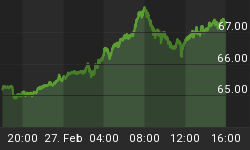Not too long ago, overseas investing in the Chinese market was a complex and tightly controlled affair. Fortunately, slowly but surely, China’s capital markets have been moving into the global investment mainstream. And now, China’s financial markets are about to mark another major milestone when the $13-trillion bond market joins a major global index. On Monday, the Bloomberg Global Aggregate Index kicked off the process of adding hundreds of Chinese bonds to its $2.5-trillion portfolio.
Bloomberg plans to take on 364 onshore Chinese bonds in a process expected to last 20 months. The class of bonds to be added is fairly diverse and includes bonds issued by the Chinese government as well as bonds by so-called “policy banks”. These are lenders set up to support Beijing’s development plans and policies.
A breakdown of the bonds includes:
- Chinese government—159
- Export-Import Bank of China—45
- China Development Bank—102
- Agricultural Development Bank of China--58
This will increase China’s weight in the index to 6 percent and attract $150 billion foreign inflows into the country.
Despite being the third-largest in the world after the U.S. and Japan, China’s bond market features low international participation with foreign investments accounting for a mere 2.4 percent of the local bond market.
Related: U.S. Reinstates Ban On Arctic Oil Drilling
China’s equity market, the second-largest in the world, is not much better off, with overseas investors owning just 7 percent of freely traded A shares. That compares poorly with 35 percent for U.S. Treasurys and 28 percent for UK government debt.
Opening up the market
The addition of Chinese bonds to the Bloomberg index will only be the beginning.
Chinese government bonds are set to join the FTSE Russell’s World Government Bond Index (WGBI) after a review in September. A 5-percent weighting in the index could pump in another $125 billion of foreign inflows into the Chinese market.
Meanwhile, JPMorgan also wants a piece of the action and plans to add Chinese bonds to the J.P. Morgan Government Bond Index-Emerging Markets which HSBC estimates will inject another $22 billion into the market.
So that’s potentially nearly $300 billion worth of Chinese bonds, with Chinese stocks likely to attract another $600 billion of foreign investments over the next decade as per HSBC estimates.
Last year, international investors bought more than $81 billion of Chinese bonds, making the bond market the largest recipient of foreign investments among emerging markets.
The scale of inflows is a clear indication that financial reforms in the country are moving in the desired direction. The addition of Chinese bonds into readily available indexes will provide money managers and retail investors with a way to tap a market reputed to offer yields that compare favorably to low-interest economies such as the U.S., Europe and Japan.
Related: The World's Next Mining Hotspot
Last year, Chinese A shares (yuan-denominated stocks that trade on the mainland) joined the MSCI Emerging Markets Index for the first time. Beijing also launched Connect Programs that allow foreign investors to purchase certain bonds and shares through Hong Kong’s stock market.
Greater demand for yuan
With more Chinese assets becoming available to foreign investors, the yuan is likely to be in greater demand. Foreign inflows of nearly $300 billion from Chinese bonds will increase the yuan’s share in foreign currency reserves.
Foreign investments are also likely to ease pressure on the yuan as Beijing undertakes structural changes to lower its current account surplus.
Earlier this year, Morgan Stanley predicted that China’s chronic current account surplus would turn into a deficit in the current year for the first time since 1993. This in effect means that the country would have to attract more foreign exchange to fund its operations.
In other words, China opening up its financial markets is a well-timed move for the country’s economy.
By Alex Kimani for Safehaven.com
More Top Reads From Safehaven.com
















